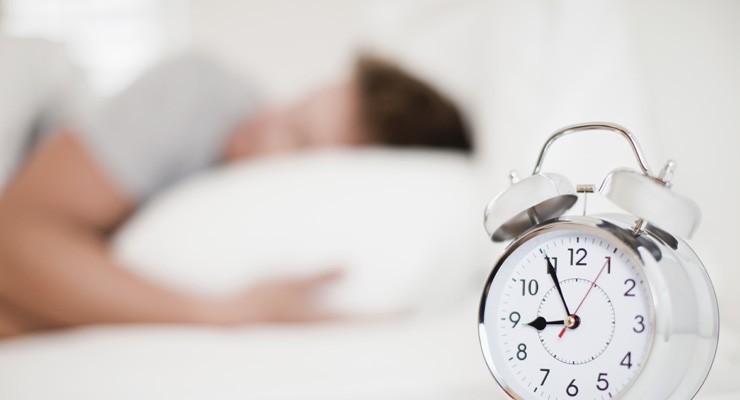How What You Eat Affects Your Sleep
Learn how small changes to your diet can help you sleep better.

Most healthy adults need 7 or more hours of sleep per night. But more than one-third of Americans have reported that they don’t get enough. The amount of sleep we each need can vary. If you are not getting enough quality sleep, you probably find it hard to get up in the morning or concentrate during the day. Or you may feel like you need a nap to get through your day. A lack of quality sleep may do more harm than just disrupt your day. Not getting enough sleep on a regular basis can increase the risk of high blood pressure, heart disease and other medical conditions.
Fortunately, there are several ways to help improve the quality of your sleep. These small changes to your diet can help you make the most of your shut-eye:
Eat well for improved energy
Eating a balanced diet can add to your energy during the day and improve your sleep cycles. A healthy eating plan includes:
- Eating more fruits and vegetables, especially dark green, red and orange vegetables
- Consuming more whole grains, as well as fat-free or low-fat milk and milk products
- Getting your protein from different foods, including seafood, lean meat and poultry, eggs, beans and unsalted nuts
Don’t eat big meals late at night
Avoid rich, heavy, spicy or acidic foods too close to bedtime. High-fat foods take a lot of work for your stomach to digest and that may keep you up. Spicy or acidic foods may cause acid reflux, which can get worse when you lie down.
Cut down on caffeine
Food or beverages with caffeine may disturb your sleep. Caffeine’s effects can take around 4-6 hours to wear off. If you are sensitive, limit eating food or drink with caffeine after lunch. Keep in mind that some medicines, including some pain relievers, contain caffeine as well.
Avoid alcohol before bed, if you choose to drink at all
Small amounts of alcohol may be relaxing and help you fall asleep, but it can make it harder to stay asleep.
Stay hydrated but avoid drinking too close to bedtime
If you wake up thirsty in the night, you may need to drink more water during the day. But find a balance to avoid needing to use the bathroom in the middle of the night:
- Sip fluids regularly throughout the day. It may be helpful to use a water bottle that you can keep with you.
- Limit your liquid in the hour or two before bed if the need to urinate is waking you up.
Quit smoking
The nicotine in cigarettes is a stimulant that may keep you awake and lead to lighter sleep overall. Heavy smokers may also wake up too early because of nicotine withdrawal.
By Riley Beggin, Contributing Writer
Sources
Centers for Disease Control and Prevention. Sleep and Sleep Disorders. Accessed June 4, 2021.
MedlinePlus. Healthy Sleep. Accessed June 4, 2021.
Sleep Foundation. Nutrition and Sleep. Accessed June 4, 2021.
U.S. Department of Agriculture. Dietary guidelines for Americans 2020-2026. Accessed June 4, 2021.
Last Updated: June 4, 2021
